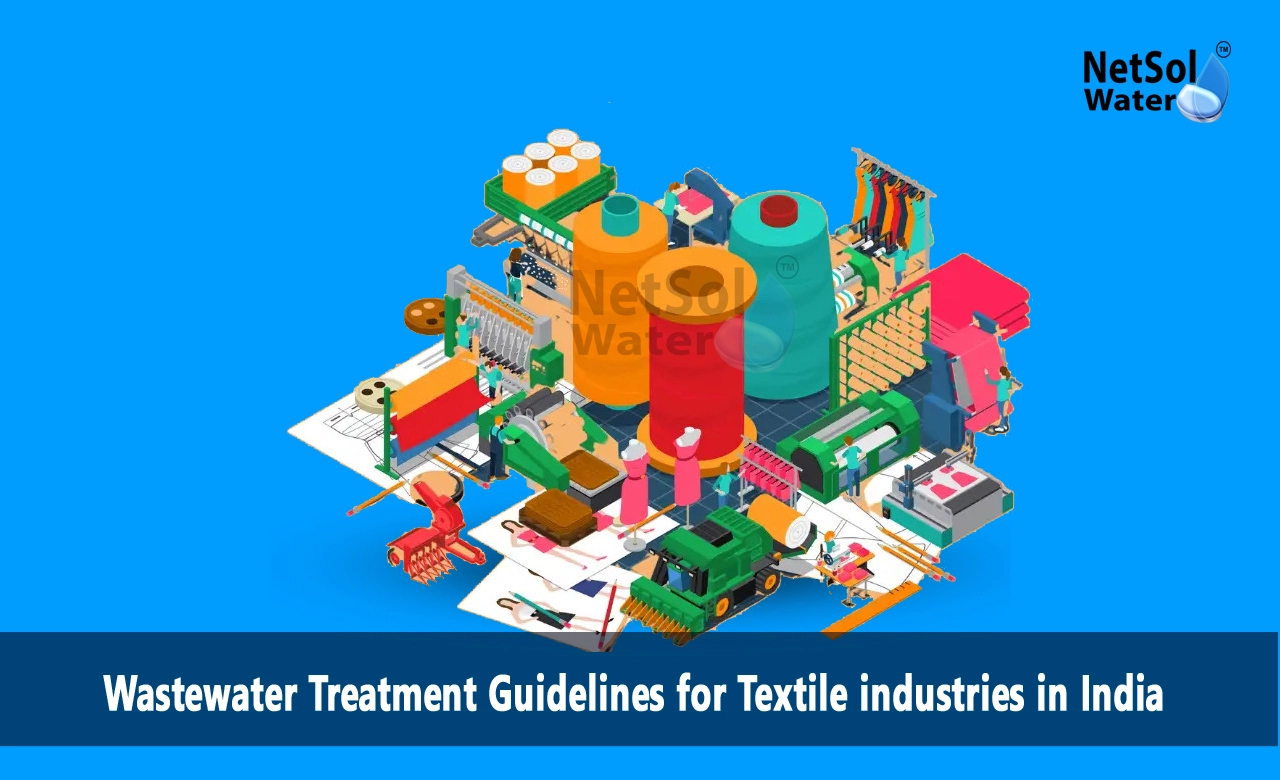What are the WWT Guidelines for Textile industries in India?
The Indian Textile Industry is governed by statute law, such as the “Environment Protection Act, 1986 (Environment Act)”, although standards were dispersed, noncomprehensive, and outmoded until recently.
The “Environment Act and Environment (Protection) Rules, 1986 (Environmental Protection Rules)”, “The Water (Prevention and Control of Pollution) Act 1974 (Water Act)”, “The Manufacture, Storage, and Import of Hazardous Chemicals Rules, 1989,”“The Hazardous Waste (Management, Handling, and Transboundary Movement) Rules, 2008,”that handle hazardous materials must, among other things, ensure that containers are correctly labelled and that, material safety data sheets' are posted.
Although there are no environmental quality standards for water recipients, the Environment Rules with Schedules list emission limit values (end-of-pipe control) as standards.
Depending on whether the treated effluent is discharged into inland surface water, 'on land for irrigation,' or into the sea, different standards are set for many parameters (so-called marine outfall). Discharge into the earth (through injection wells) is a widespread procedure, but it is not included in the list. The level of TDS, which reflects the mineral (dye fixing) salt and heavy metal content in the water, is a critical criterion for treatment plants that accept wastewater from textile dyeing units.
If the effluents travel through the sewage system to a municipal treatment facility, the BOD (Biochemical Oxygen Demand) and COD (Chemical Oxygen Demand) limitations are relaxed. These guidelines serve as a national minimum for polluters, establishing limitations for pH, total suspended particles, and BOD, as well as extra criteria for firms that use chrome dyes, sulphur dyes, and/or phenolic chemicals. The CPCB or individual state PCBs have the authority to set more strict quality criteria.
Guidelines for Textile Industries in India
Groundwater is used by the majority of textile companies in India, either from their own wells or from landowners who distribute it by tankers. The colonial legal framework, in general, allows landowners to abstract infinite quantities without prior authorization, although under guidelines issued by the “Central Ground Water Authority” for notified areas, groundwater abstraction through energised pumping can only be granted for drinking water purposes.
In areas where the groundwater situation is classified as critical, semi-critical, or safe, water-intensive industries such as textiles (defined as dyeing, printing, and spinning) must obtain a “No Objection Certificate” from the competent authorities;
From 2015, this also applies to existing factories.They will not be awarded a certificate for groundwater abstraction in over-exploited areas, and the Authority will renew permits for those that were issued prior to November 2012, initially for two years and then every three years.
The maximum permissible abstraction volume is determined by varying amounts of groundwater recharge; however, treated waste water cannot be utilised for this purpose, making it difficult for wet processing units to get the required consent. In practise, however, the groundwater Guidelines have received very little attention.
Following the adoption of a “Model Bill” distributed by the Centre, several states are regulating groundwater use. A Government order in Tamil Nadu restricts the use of abstraction for commercial objectives.
Conclusion
It is well acknowledged that industrial wastewater is frequently released untreated or inadequately treated, and that water allocation for drinking and agricultural uses must take precedence over industrial use. More advanced and current methods are frequently mentioned in addition to the traditional physico-chemical and biological (primary and secondary) therapy processes. The introduction of 'zero liquid discharge' should be understood against this backdrop.
How can Netsol Water help?
Netsol Water is a significant water and wastewater treatment firm in India, offering WTP, WWTP, STP, ETP, RO Plant manufacture, among other services. The company creates equipment’s and is committed to providing practical solutions that help businesses flourish. We are committed to providing our valued customers with hands-on service, expert counselling, and training.
Netsol Water is Greater Noida-based leading water & wastewater treatment plant manufacturer. We are industry's most demanding company based on client review and work quality. We are known as best commercial RO plant manufacturers, industrial RO plant manufacturer, sewage treatment plant manufacturer, Water Softener Plant Manufacturers and effluent treatment plant manufacturers. Apart from this 24x7 customer support is our USP. Call on +91-9650608473, or write us at enquiry@netsolwater.com for any support, inquiry or product-purchase related query.



